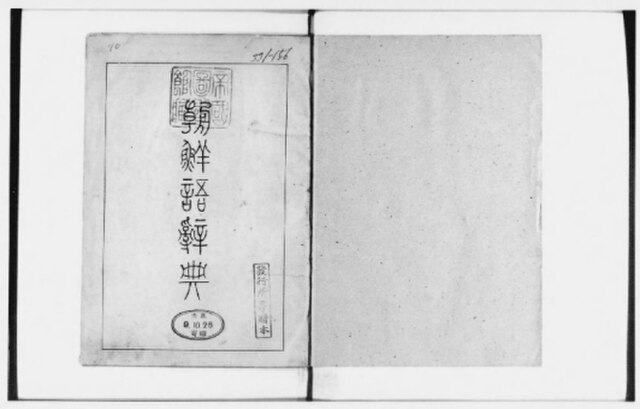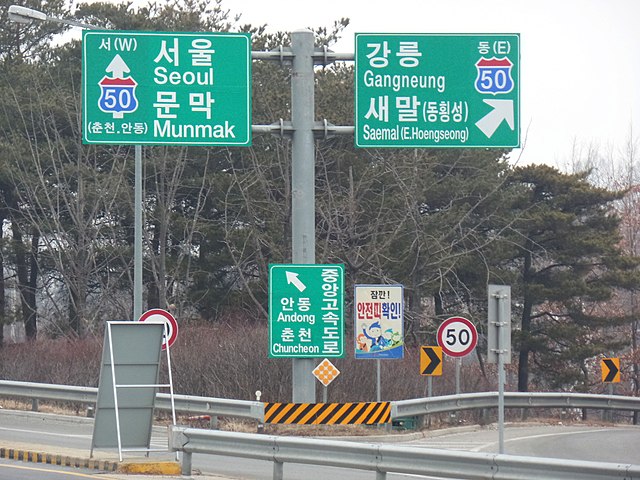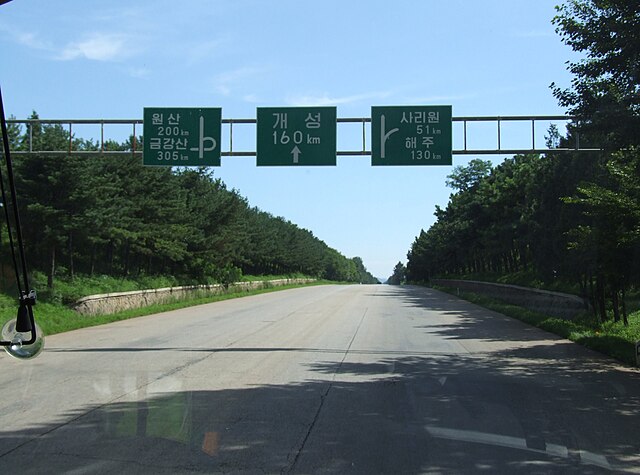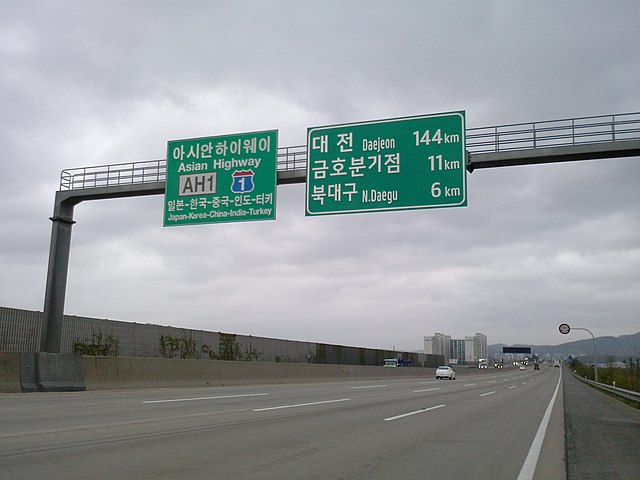Kim Tu-bong was the first Chairman of the Workers' Party of North Korea from 1946 to 1949. He was known in South Korean history as a linguist, scholar, revolutionary and politician. His most famous work was under Ju Sigyeong; later, after participating in the March 1st Movement, he with other Korean leaders of the time established a provisional government-in-exile in China, and because of his communist beliefs he played an important role in the early North Korean communist government.
Kim in 1955
Kim Tu-bong (right) sitting next to Kim Il Sung (center)
From left to right: Pak Chang-ok, Li Jishen, Kim Tu-bong, Zhu De, Kim Il Sung, Averky Aristov, Pak Chŏng Ae, and Choe Yong-gon in 1955.
Korean is the native language for about 81 million people, mostly of Korean descent. It is the official and national language of both North Korea and South Korea. The language has notable differences in each of the Koreas, in part owing to different official standardizations of the language. They are still largely mutually intelligible, however. South Korean newspaper Daily NK has claimed North Korea criminalizes the use of the South's standard language with the death penalty, and South Korean education and media often portray the North's language as alien and uncomfortable.
The oldest Korean dictionary (1920)
The Latin alphabet used in romanization on road signs, for foreigners in South Korea
Highway sign in Korean, Reunification Highway, Pyongyang, North Korea
Highway sign in Korean and English, Gyeongbu Expressway, Daegu, South Korea







